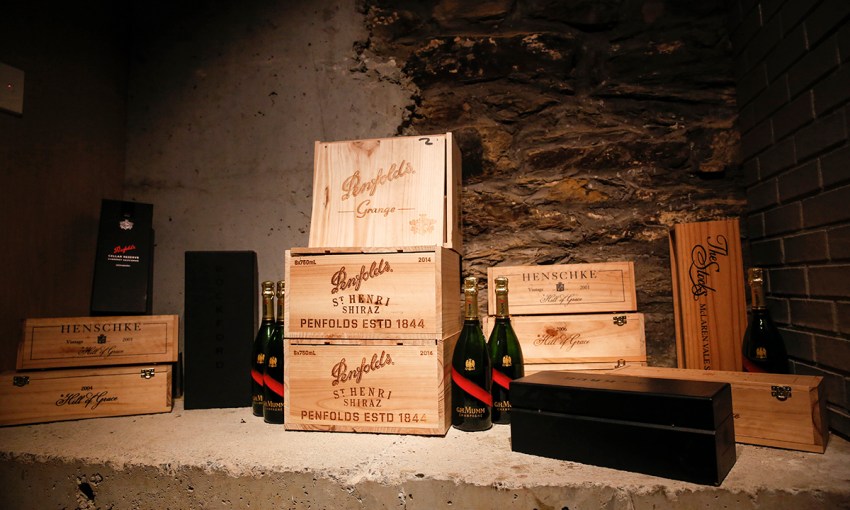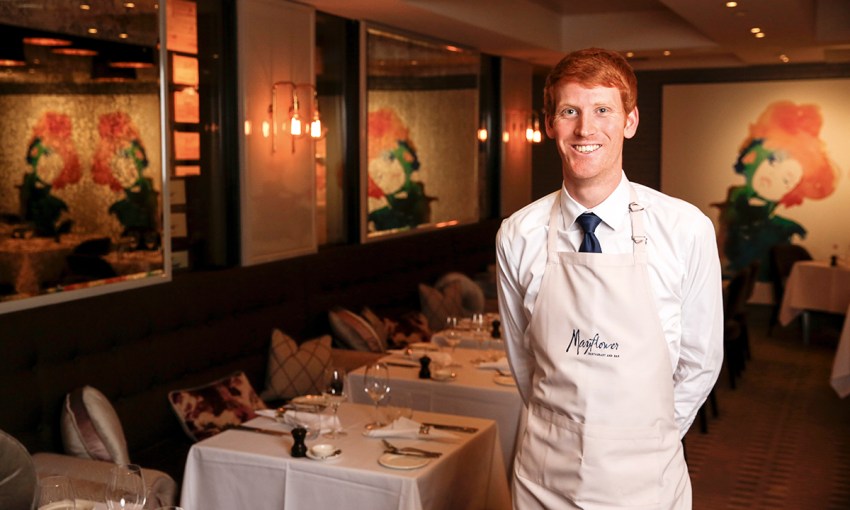Wine specialist and waiter at the Mayfair Hotel's Mayflower Restaurant, Callum Strong has a passion for wine and food.
Three minutes with … Callum Strong
What makes an excellent wine specialist?
A thorough understanding of gastronomy and how food and wine interact are implicit, but rapport and engagement are equally important. The ability to develop an understanding of the consumers’ tastes, experiences and expectations is necessary to recommend appropriately. Service and hospitality extend beyond the presentation of food and wine, they require entertainment, atmosphere and comfortability. Someone who can establish this is an excellent wine specialist and waiter.
Is your role common in today’s high-end restaurants?
Yes, it is. Traditionally speaking, the role is often quite defined and somewhat restricted to wine service, as it is still in many high-end restaurants, especially those with large wine lists. The specialist could be involved in constructing and adapting the wine list to suit the restaurant’s menu, and vice-versa.
How did you discover your passion for wine?
During my undergraduate years I worked in a small wine bar in Melbourne. I became knowledgeable in two faculties, chemistry and wine. When I talked to people of chemistry, I would usually bore them. People are, however, generally very willing to talk about what they are eating and drinking. I found that entertainment and engagement rewarding. So, my passion of wine began.

Having worked overseas, what brought you back home?
I worked several vintages — one in the Barossa Valley, then in Germany and in New Zealand — and found that my passion lay in production. I then returned to Adelaide, my home town, to pursue it. I studied viticulture and oenology.
What drew you to work in a restaurant?
I’ll return to winemaking at some stage and will certainly take the opportunity to travel and work abroad again so that I can develop and improve my knowledge and craft. For the meantime, I hope to develop a greater understanding of the consumer, without whom you can’t survive as a producer. I hope this will make me more of an informed winemaker and marketer.
What have your learnt so far about customers’ tastes?
I am starting to understand why many of the main styles may be popular; why shiraz is so patriotically consumed in SA, and why sauvignon blanc is losing favour. I have learnt that most people are comfortable in the familiar, but if I can instil some confidence and guide them, most are excited to venture and explore their tastes.
You must also have a strong interest in food?
Naturally! My interest and understanding of food are certainly not as structured or as informed as that of wine but, broadly, the same gastronomic principles apply. I enjoy the creative side of cooking, as I do winemaking. I also enjoy understanding the processes of food production and meal preparation. Mostly though I love the environment that good food and good wine establishes.
What is the most expensive bottle in the Mayflower cellar?
In a time where the wine market is dominated by easy-drinking, early consumption styles of wine, the opportunities to experience the exceptional nuances of wines of age are becoming less frequent. The Reserve Wine Collection at the Mayflower offers an amazing catalogue of back-vintage wines from some of the state’s premier producers. It is a marvel to have the opportunity to work with such wines. The most premium is the 1994 Henschke Hill of Grace Shiraz at $2100.
This story first appeared in the September 2019 issue of SALIFE magazine.



